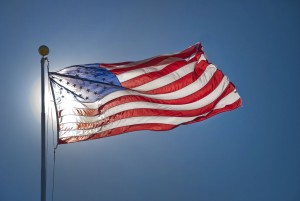How Do We Honor Veterans? By Learning from Their Experiences.

On Veterans Day we take time to honor those who fight our nation’s wars. This is a time to honor our veterans, and one of the most important ways we can do that is to learn from their experiences. This year we should all take time to really talk to younger veterans to understand lessons that have been learned in the last ten or more years of war. As conflicts in the Middle East continue, congressional power shifts, many in Congress call for tough (read: military) responses, and the president seeks a show of strength following defeat at the polls, our veterans should be consulted on the real price paid when war is the chosen solution for political problems.
We all remember veterans of the two World Wars and the Korean War. The heroism and suffering of the so-called Greatest Generation is known now, but in the past was buried in their justified desire to return to real life. Our opportunity to learn from their experience was also limited by the McCarthy-era jingoism that praised anti-communist rhetoric over all else, especially human-centered introspection about war.
The Vietnam War saw the United States turn its back on its soldiers. The great anti-war sentiment was directed as much at military personnel as it was against the politicians who truly direct the war policy and, at that time, draft policy. Veterans were embarrassed about service they didn’t even volunteer for. Many were suffering from what they saw and did, and Americans offered them ridicule rather than welcome. Veterans themselves had no opportunity to come to terms with war and so the rest of America lost the opportunity to learn.
From the early 1970s to the aftermath of 9/11, the United States engaged in limited military engagements, including Grenada, Desert Storm, and various Cold War skirmishes. For the past ten years we’ve seen military personnel come home from military conflicts. The opportunity to more easily publish their stories on the Internet and in print has seen the war experience come to life as it never has before. In many of these stories soldiers praise the courage and sacrifice of their comrades. Nearly all lament the loss of life of civilians all around them. These stories also show a regret that their combat service seemed to be for political power rather than true humanitarian action.
Since 9/11 and the U.S. invasions of Iraq and Afghanistan, veterans have gone to war and come home to a national dialogue. America has received its sons and daughters amid great outcry against politicians but great care and concern for our veterans. Rampant suicide rates, post-traumatic stress, and the integration of gays and lesbians into the military and women into combat roles have all been part of the recent military transformation. All these lessons are learned collectively among our veterans. American society can benefit greatly from tapping into that knowledge. And we all have a moral obligation to learn those lessons before even considering any future conflicts.
This Veterans Day we should talk to veterans about what war means and for what reasons, if any, war should be considered. As a veteran I hope and expect that those reasons will include humanitarian purposes only: saving the destitute from dictators, protecting children from sex slavery, protecting populations from genocide. Equally important is that the United States brings its unparalleled military power to war only in coalition with the international community and never by unilateral direction of chicken-hawk politicians. Reasons related to oil, territory, religion, and perceived threats cannot justify combat action. And every day we must count not just U.S. casualties but casualties of people of all nationalities and skin color who are harmed by military conflict. I think we will also hear from veterans that the U.S. military is a fighting force, a killing force. Our military is not a peacekeeping force or a police force or a cohort of college students. On our streets, deadly force is (or should be) a last resort only in self-defense, and that should also be true in international conflicts. This veteran expects that successfully realizing humanitarian goals is possible when we move quickly from initial military action to rebuilding efforts in concert with local leaders and trustworthy nongovernmental charitable organizations.
Veterans today are working through post-traumatic stress, the pain of separation and the loss of their squadmates, and the deep despair that the entire endeavor may all have been a political ploy. These experiences should be lessons before any military action is considered again, whether in Syria, Ukraine, Iran, Iraq, or any of the potential warzones that are currently in the political discussion.
